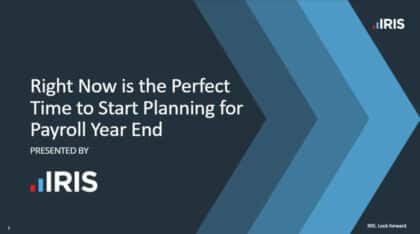What is payroll compliance software?
Payroll compliance software is a digital program or application that helps you adhere to federal, state, and local payroll legislation.
Alongside automatically calculating your people’s paychecks down to the cent, payroll compliance software can also provide automated tax filing, in-depth payroll reporting, and real-time compliance updates.
By keeping your payroll more compliant than ever, payroll software helps you reduce errors and avoid pesky penalties.

Who uses payroll compliance software?
Payroll compliance software is used by:
- Payroll service bureaus processing high volumes of payroll data
- CPAs and accountancy firms handling clients’ payroll as an added-value service
- In-house payroll teams ensuring compliance with federal, state, and local law.
Not everyone opts for software; accountants and CPAs often rely on payroll compliance services and many global organizations prefer outsourcing through global payroll services.
What to look for in your payroll tax compliance software
Whether you’re investing in software or upgrading your existing system, here are some key features and functions to look out for.
-
Ready for a lot of data
Payroll service providers are inevitably going to be processing a huge amount of data as part of running their clients’ payrolls.
Look out for payroll and tax compliance software that’s designed specifically for payroll bureaus or large international organizations; that way, you’ll know the software can handle the heat.
Even if you’re not looking to process thousands of payslips per month just yet, payroll software that can handle large volumes of data indicates you’ve found a robust, future-proof solution.
-
Easy to “drive”
Running payroll is hard enough without having to suffer through software that’s cluttered, clunky, and difficult to easy.
When we say “easy to drive”, we mean software that has a clear, well-designed interface – something that’s simple to understand and navigate, even for folks who aren’t particularly tech-savvy.
This isn’t just about aesthetics (although a good-looking interface is always nice to have!). You’ll likely need to coach colleagues and clients on how to use this tech; so the easier it is to drive, the better.
-
Seamless tax e-filing
Keeping your payroll calculations compliant with legislation is just one function of great payroll software.
Alongside adhering to tax regulations, you’ll ideally want payroll software that allows you to file your tax electronically.
This significantly cuts down on manual paperwork and reduces the likelihood of human error creeping in, keeping your business safe from fines or legal action.
-
Reporting for duty
One of the biggest upsides of using hard-working, feature-rich payroll software is having access to payroll compliance reporting.
Some payroll software allows you (or your clients) to generate a wide range of different payroll reports based on real-time data – including payroll compliance reporting.
Solutions like Apex HCM by IRIS’s payroll system allow you to choose from standard report templates or build your own export reports in multiple formats.
-
Part of the complete package
There’s more to employee management than payroll and compliance management.
Look for payroll software that either has other HCM functions included in the package or it will integrate well with your existing systems. Some HCM functions that are nice to have include:
- workforce management
- applicant tracking and onboarding
- new hire reporting
- and Affordable Care Act (ACA) compliance.
-
Built with you in mind
Depending on who you are and what you need payroll software for, you may want to look for software that’s designed for your requirements.
For example, if you’re an accounting or CPA firm, look out for solutions like Payroll Relief. This kind of flexibly priced software is built specifically for accountants, helping them to offer a complete payroll service to clients without overloading internal resources.
On the other hand, more powerful solutions like Apex HCM’s platform are ideal for those with high-volume processing needs, like payroll service bureaus or service bureau organizations.
Ready for a lot of data
Payroll service providers are inevitably going to be processing a huge amount of data as part of running their clients’ payrolls.
Look out for payroll and tax compliance software that’s designed specifically for payroll bureaus or large international organizations; that way, you’ll know the software can handle the heat.
Even if you’re not looking to process thousands of payslips per month just yet, payroll software that can handle large volumes of data indicates you’ve found a robust, future-proof solution.

Featured Guide
Mastering US Federal Payroll Compliance
If you work for an accounting firms or payroll service bureau, this guide provides the advice you need to ensure complete Federal payroll compliance for your clients.
Payroll compliance services for growing companies
Payroll software isn’t the only way to ensure compliance with legislation.
For growing businesses and organizations employing people overseas, outsourcing to a global payroll service can be a more efficient way of handling payroll – especially if you need to pay people working outside the states.
Service-based solutions like IRIS Global Workforce Management take care of your payroll for you, so you can focus on developing your business.

Learn more about payroll and compliance management

Webinar
How to Plan for Payroll Year-End

Blog Article
Managed Services vs Software In A Payroll Business

Blog Article


